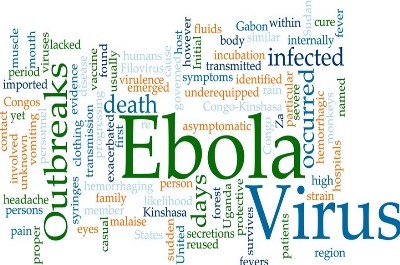Rebuilding Sierra Leone’s health care begins with eco-friendly disposal of medical waste
Freetown, 19 March 2015: A delegation from the Republic of Korea and the United Nations Development Programme (UNDP) celebrated the installation of an autoclave used for the safe disposal of medical waste at the Goderich Emergency Surgical and Paediatric Hospital just outside Freetown.
The Ebola outbreak ravaged Sierra Leone’s already vulnerable healthcare system and the waste decontamination facility is the first step in rebuilding the health sector.
“With the autoclave technology, tremendous improvement has been made in the disposal of medical waste, including Ebola-related waste, in an eco-friendly manner,” said Nah Sejoo, the Head of RoK mission.
UNDP coordinated the installation of the autoclaves and trained staff to safely run the sterilization machine. This technology kills harmful viruses and bacteria, like the Ebola virus, from waste like needles, gloves and bandages, and allows for safe disposal of the potentially harmful medical waste.
Lionel Laurens, UNDP Ebola Response Coordinator, said that the autoclaves, developed by the Global Environment Facility (GEF) with the African context in mind, is very practical and appropriate for developing countries like Sierra Leone.
“The setting up of an effective waste disposal system in Sierra Leone will immensely help in infection control thereby preventing and curbing infections in the future. This is indeed the beginning of rebuilding delivery of essential services, especially the healthcare services in Sierra Leone,” Mr. Laurens said.
A total of 10 autoclave machines will be installed across the country over the next few months. Whilst the technology had initially been pioneered in Ebola treatment centres for the safe disposal of EVD-related waste, subsequent autoclave units will be installed in non-EVD facilities for the treatment of infectious waste. This initiative supports the Government of Sierra Leone’s health recovery programme to strengthen infection prevention and control, through the safe management of medical waste.
For the Goderich facility, with beds for 100 people, and a high number of walk-ins, the international-standard technology will protect the patients, the staff and the community around the hospital.
According to Gianfilippo Pascolini from Emergency, patients receive the same level of care that they would in Rome, Paris or New York. “This equipment can and must be the kind of equipment that helps us deliver effective infection prevention in the hospital and the country. It is the future of treating medical waste properly,” he said.
Inside the wards, infectious waste is collected every few minutes. Patients, many of whom have broken bones and cuts from road accidents, have little to do but chat with the nurses as they clean up their wounds. Bandages are tossed into a hazard bag by one of the 400 staff working at the hospital.
It’s in the waste stream that the most risk lies for healthcare providers and assistance staff. For Mohamed Kargbo, a cleaner and trained autoclave operator, he knows that his work is easier and his health is better protected with the new machine.
“The medical waste is not infectious anymore when it is taken to dump sites, because the machine would have killed all organisms or dangerous bacteria before it’s taken away,“ Mr. Kargbo said.
In addition to the autoclave installation, UNDP will assist hospitals with infection controls through waste management protocols and where necessary, assist the facilities to develop and implement infection prevention and control systems.
Stay with Sierra Express Media, for your trusted place in news!
© 2015, https:. All rights reserved.






